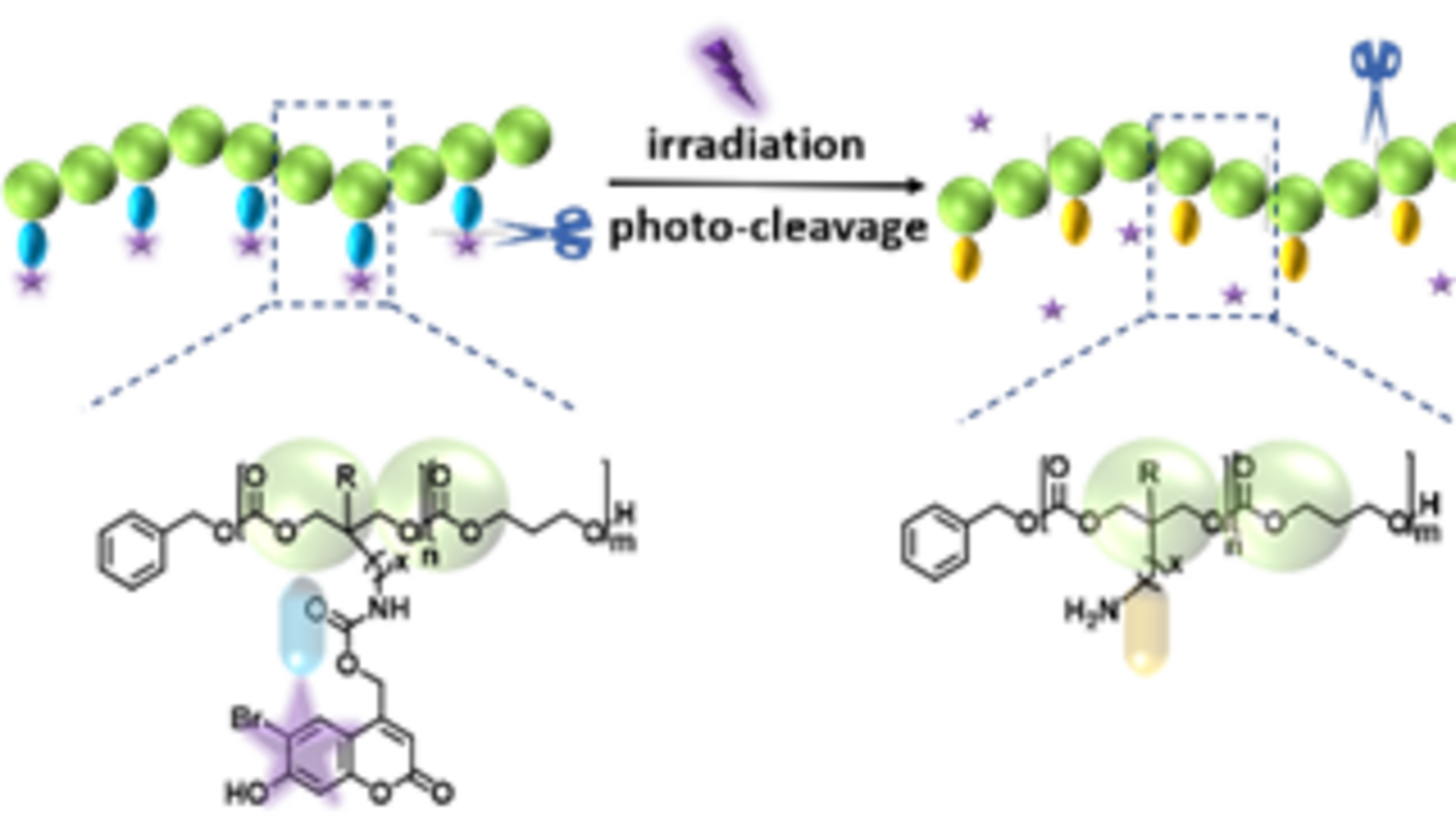For an effective pharmacotherapy an optimal accumulation of a drug within an affected part of the body is required. Furthermore, a controlled release of the drug at the target site is required. This can be realized by “intelligent” systems utilizing different triggers like light, pH value or redox properties to release the drug in a controlled fashion. Colloidal drug delivery systems based on novel switchable polymers are investigated allowing an effective drug transport into cells and tissues. Hence, on one side the intracellular pH shift in endolysosomal compartments is used to effectively degrade the polymer and release the drug. Furthermore, the increased concentration of reductive glutathione (GSH), which especially can be found in tumor cells, is used for the degradation of redox-sensitive polymers. Additionally, light switchable polymers are investigated that can release the embedded drug from the drug carrier after a short period of irradiation. The final goal is the development of drug delivery systems being able to respond to different stimuli.
Selected publications:
Synthesis and Characterization of Light-Degradable Bromocoumarin functionalized Polycarbonates
A.-K. Müller, D. Jung, J. Sun, D. Kuckling,
Polym. Chem. 2020, 11, 721 - 733.
Light-responsive serinol-based poylcarbonate and polyester as degradable scaffolds
J. Sun, D. Jung, T. Schoppa, J. Anderski, M.-T. Picker, Y. Ren, D. Mulac, N. Stein, K. Langer, D. Kuckling,
ACS Appl. Bio Mater. 2019, 2, 3038-3051.
Preparation of light-responsive aliphatic polycarbonate via versatile polycondensation for controlled degradation
J. Sun, J. Anderski, M.-T. Picker, K. Langer, D. Kuckling,
Macromol. Chem. Phys. 2019, 220, 1800539.
Contact

Professorship for Organic and Macromolecular Chemistry
Office: J3.310
Phone: +49 5251 60-2171
E-mail: dirk.kuckling@uni-paderborn.de
